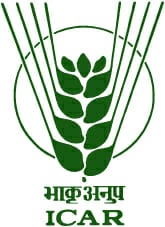OTHER PRODUCTS
BIOTECHNOLOGY PRODUCTS DEVELOPED
Genetic Engineering of chickpea for insect resistant (IR) trait Technologies:
| Sl No. | Title | Biotechnological Product-1 |
|---|---|---|
| 1 (a) | Name of the Division | Division of Plant Biotechnology |
| 1 (b) | Name of the Institute | ICAR-Indian Institute of Pulses Research, Kanpur 208 024 |
| 2. | Title of the research and technologies developed during last five years | Genetic Engineering of chickpea for insect resistant (IR) trait
Technologies:
|
| 3. | Salient features of the research/technology |
|
| 4. | Developed by (Name/Designation/Contact No./Email ID) | Dr ALOK DAS, Senior Scientist, Division of Plant Biotechnology, ICAR-Indian Institute of Pulses Research, Kanpur 208 024
P: 0512-2582580 EXT 1006; M: 9451446964 E: alok.das@icar.gov.in |
| 5. | How this technology contributed to Agricultural advancements or improved farmers practices | Chickpeas were thought recalcitrant to regeneration and transformation. Development of routine protocol for regeneration amenable to genetic transformation (direct and indirect) opens up the possibility to transfer/edit genes in chickpea. Transfer of AtDREB1a gene for enhanced drought tolerance was also demonstrated using the technology. The technology provides an important tool for functional as well as translational genomic studies in chickpea |
Genetic Engineering of pigeonpea for insect resistant (IR) trait
| Sl No. | Title | Biotechnological Product-2 |
|---|---|---|
| 1 (a) | Name of the Division | Division of Plant Biotechnology |
| 1 (b) | Name of the Institute | ICAR-Indian Institute of Pulses Research, Kanpur 208 024 |
| 2. | Title of the research and technologies developed during last five years | Genetic Engineering of pigeonpea for insect resistant (IR) trait
Technologies:
|
| 3. | Salient features of the research/technology |
|
| 4. | Developed by (Name/Designation/Contact No.Email ID) | Dr ALOK DAS, Senior Scientist, Division of Plant Biotechnology, ICAR-Indian Institute of Pulses Research, Kanpur 208 024
P: 0512-2582580 EXT 1006; M: 9451446964 E: alok.das@icar.gov.in |
| 5. | How this technology contributed to Agricultural advancements or improved farmers practices | Pigeonpea were thought recalcitrant to regeneration and transformation. Development of routine protocol for regeneration amenable to genetic transformation opens up the possibility to transfer/edit genes in pigeonpea. The technology provides an important tool for functional as well as translational genomic studies in pigeonpea |
Genome Editing (SDN1) of chickpea for yield attributing traits
| Sl No. | Title | Biotechnological Product-3 |
|---|---|---|
| 1 (a) | Name of the Division | Division of Plant Biotechnology |
| 1 (b) | Name of the Institute | ICAR-Indian Institute of Pulses Research, Kanpur 208 024 |
| 2. | Title of the research and technologies developed during last five years | Genome Editing (SDN1) of chickpea for yield attributing traits
Technologies:
|
| 3. | Salient features of the research/technology |
|
| 4. | Developed by (Name/Designation/Contact No.Email ID) | Dr ALOK DAS, Senior Scientist, Division of Plant Biotechnology, ICAR-Indian Institute of Pulses Research, Kanpur 208 024
P: 0512-2582580 EXT 1006; M: 9451446964 E: alok.das@icar.gov.in |
| 5. | How this technology contributed to Agricultural advancements or improved farmers practices | Genome Editing permits targeted mutation of gene in precise manner. Development of the technology shall enable gene editing of chickpea for target traits of Agricultural Importance |
Speed Breeding protocols for rapid generation advancement of chickpea:
| Sl No. | Title | Biotechnological Product-4 |
|---|---|---|
| 1 (a) | Name of the Division | Division of Plant Biotechnology |
| 1 (b) | Name of the Institute | ICAR-Indian Institute of Pulses Research, Kanpur 208 024 |
| 2. | Title of the research and technologies developed during last five years | Speed Breeding protocols for rapid generation advancement of chickpea:
|
| 3. | Salient features of the research/technology |
|
| 4. | Developed by (Name/Designation/Contact No.Email ID) | Dr ALOK DAS, Senior Scientist, Division of Plant Biotechnology, ICAR-Indian Institute of Pulses Research, Kanpur 208 024
P: 0512-2582580 EXT 1006; M: 9451446964 E: alok.das@icar.gov.in |
| 5. | How this technology contributed to Agricultural advancements or improved farmers practices | Speed Breeding can accelerate the generation advancement scheme in chickpea breeding. This in turn can lead to quicker development of genome edited lines, mapping populations and development of chickpea varieties. |
MICROBIAL CONSORTIUM
Microbial consortium to mitigate moisture deficit stress
| S. No. | Title | Microbial consortium |
|---|---|---|
| 1 (a) | Name of Division: | Division of Basic Sciences |
| (b) | Name of Institute: | ICAR-Indian Institute of Pulses Research, Kanpur |
| 2. | Title of the Research & Technologies developed during the last year five years: | Microbial consortium for mitigation of moisture deficit stress in pulses
Developed in 2017 and evaluated under AICRP-Chickpea during 2017-2020 |
| 3. | Salient feature of the Research/Technology : | Microbial consortium consisting bacterial determinants with mechanisms via ACC deaminase, production of plant hormones line cytokinin and IAA, production of extracellular polymeric substances to prevent ethylene stress, and to improve plant growth and water use efficiency through biofilm formation. |
| 4. | Developed by (Name/Designation/Contact no./Email Id): | Director, ICAR-IIPR, Kanpur (Lead)
Dr. M.Senthilkumar, Pr. Scientist (Microbiology) (Lead) Mo. 8576063475 Mail. m.kumar@icar.gov.in |
| 5. | How this Technology contributed to agricultural advancements or improved farmer practices : | Microbial consortium mitigates moisture deficit stress during crop growth stage by increasing water use efficiency through biofilm formation and supports plant growth by producing growth hormones and delay the senescence by balancing ABA/cytokinin ratio in stressed plants. Pooled data of multilocation trails under AICRP-Chickpea (2017-2020) indicated 8% enhanced yield over Mesorhizobium treatment. |
| 6. | Details of Impact on farmer’s livelihood and agricultural practices: | Microbial consortium is being produced and supplied on demand basis. Bioinoculant production unit is being developed for mass production and supply to farmers.
Awareness programs were organized to attract entrepreneurs and ABI-incubatees. |


